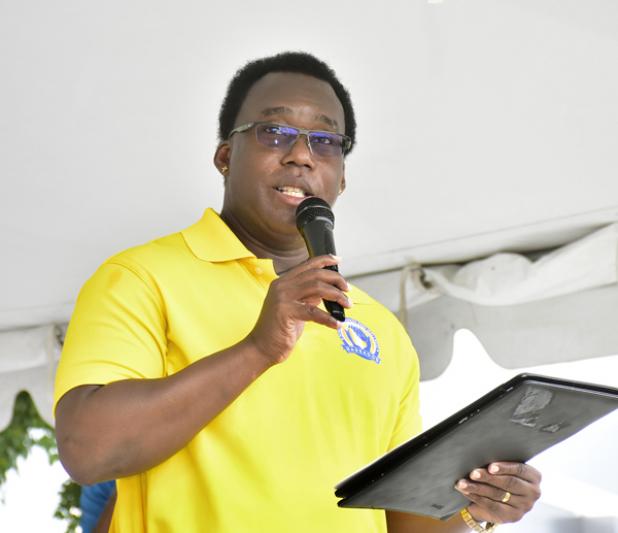
Chief Executive Officer of the Supreme Counselling for Personal Development Shawn Clarke.
Guard against stress
Be realistic!
Words of advice from Shawn Clarke, Chief Executive Officer of the Supreme Counselling for Personal Development who pointed out that persons are dealing with high levels of stress and must find coping mechanisms to navigate daily challenges.
He was at the time addressing activities to celebrate Caribbean Wellness Day over the weekend, where he explained that while stress is a natural reaction the body goes through, it is imperative that persons stop aiming for perfection.
“No one is [perfect]. Don’t put unnecessary pressure on yourself. If you need help with something, ask for it.”
Clarke, who is a member of the National Task Force on Wellness also explained that stress can be positive, keeping persons alert, motivated, and ready to avoid danger. On the other hand, stress becomes negative when a person faces continuous challenges without relief or relaxation between stressors.
“As a result, the person becomes overworked, and stress-related tension builds. The body’s autonomic nervous system has a built-in stress response that causes physiological changes to allow the body to combat stressful situations. This stress response, also known as the “fight or flight response”, is activated in case of an emergency. However, this response can become chronically activated during prolonged periods of stress. Prolonged activation of the stress response causes wear and tear on the body – both physical and emotional.”
Clarke cautioned that stress also becomes harmful when people engage in the compulsive use of substances or behaviours to try to relieve their stress.
“These substances or behaviours include food, alcohol, tobacco, drugs, gambling, sex, shopping, and the internet. Rather than reducing the stress and returning the body to a relaxed state, these substances and compulsive behaviours tend to keep the body in a stressed state and cause more problems. The distressed person becomes trapped in a vicious circle.”
He said it is imperative that stress reduction is prioritised.
“People can learn to manage stress and lead happier healthier lives. You may want to begin with the following tips: Keep a positive attitude. Accept that there are events that you cannot control, be assertive instead of aggressive. Assert your feelings, opinions, or beliefs instead of becoming angry, defensive, or passive.”
Clarke also encouraged persons to learn and practice relaxation techniques; try meditation, yoga, or tai-chi; exercise regularly; eat healthy, well-balanced meals; make time for hobbies and interests, learn to manage time more effectively and set limits appropriately and say no to requests that would create excessive stress, to name a few.
He is also urging persons to seek treatment with a psychologist or other mental health professional trained in stress management or biofeedback techniques to learn more healthy ways of dealing with the stress.
“Stress-management skills work best when they’ve practised ahead of time, not just when the pressure’s on. Knowing how to “de-stress” and calm yourself can help you get through challenging circum-stances,” he said. (JH)
